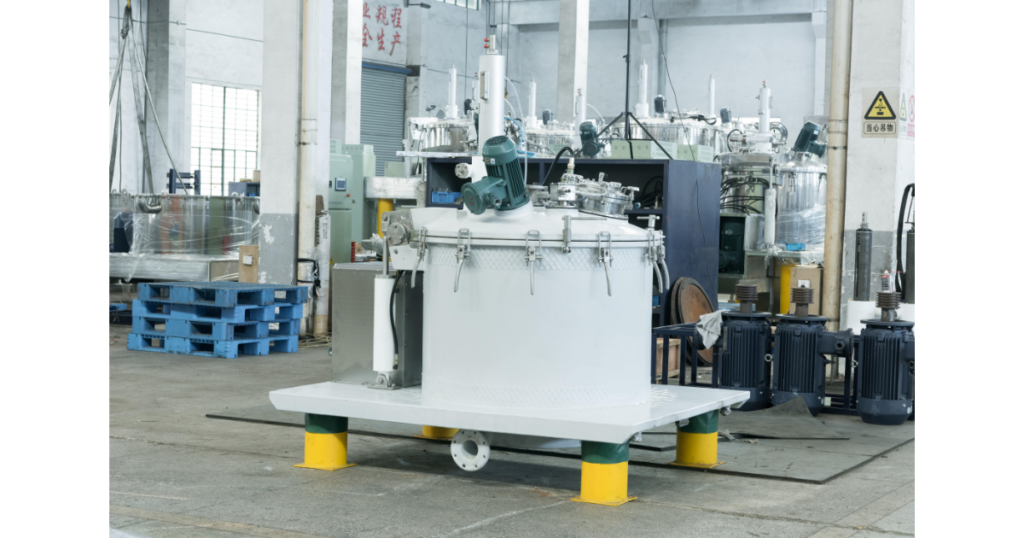Material Compatibility of Industrial Centrifuge Equipment
Consider material compatibility the first and foremost concern when selecting industrial centrifuge equipment—it’s like selecting the right “protective coat” for the machine based on what it will be processing. Industries handle different materials. For instance, dairy factories handle high-fat milk, chemical plants work with corrosive acids, and wastewater plants need to deal with abrasive solids. The surfaces of the centrifuge parts, like the drum and impeller, need to be durable and resistant to the materials to prevent excessive rust, wear, and contamination.
Take the pharmaceutical industry, for instance. Purity is essential and that calls for a centrifuge fashioned with 316L stainless steel because it is resistant to cleaning chemical corrosion and will not leach metal particles into the final product. Conversely, while processing heavy abrasive sludges in construction wastewater, a centrifuge with a ceramic coated drum, is recommended because it will outlast a standard steel drum. It’s important to understand that while ignoring material compatibility may seem like a low-cost strategy, it will lead to high losses in repairs, product replacements, and even product recalls.
Prior to making a decision, you should list the specific materials, including their pH levels, temperatures, and how abrasive they are, that your centrifuge will work with. You should then consult the manufacturer to ensure that the materials the centrifuge is made of will work with the list you provided. This is a small detail, but will ensure your centrifuge is reliable for years to come.
Processing Capacity of Industrial Centrifuge Equipment
Another crucial “make-or-break” factor is the processing capacity. You do not want an industrial centrifuge to be like a pair of shoes that is either too small or too big. The processing capacity of the centrifuge refers to how much material the centrifuge can process either hourly, or per batch. It needs to align with your daily production needs to avoid backlogs. If you select a centrifuge with a capacity that is smaller than your anticipated output, the centrifuge will become a bottleneck, slowing down production, causing missed deadlines, and frustrating your customers.
Having a centrifuge that is too large for your needs can be just as problematic as having one that is too small. It adds unnecessary costs, consumes additional power, and requires more expensive maintenance. Take a small-scale juice producer that processes 5,000 liters of fruit pulp a day. A centrifuge that processes 20,000 liters a day would sit idle most of the time and cost the imprudent owner even more in electrical costs.
What is the best approach to prevent large idle centrifuge costs? Determine your average daily processing volume. Adding a 10-15% for daily processing volume will be sufficient for most cases. That volume will handle your everyday needs and sudden spikes in processing needs. The manufacturer will be able to assist you with volume needs and specifications.
Separation Efficiency and Precision of Industrial Centrifuge Equipment
When buying industrial centrifuge equipment, one of the things you pay for is the centrifuge’s ability to separate materials quickly and accurately. This brings us to separation efficiency and precision. Efficiency is how fast the centrifuge completes a separation task, and precision is how clean the separation is (i.e. how much oil is removed from water, or how pure the separated solids are). Both precision and efficiency affect the quality of the product and how much your business will spend for operations.
A good example is the edible oil industry. High-efficiency centrifuges separate oil from meal in a couple of minutes, which means the business can process several more batches a day. Precision maintains profit margins by making sure that almost no oil is left in the meal. This maximizes profit and boosts productivity. If a centrifuge is imprecise, you will end up losing valuable product (like leftover oil) or getting a low-quality end product (like oil with too many impurities). This can affect your brand and reputation.
Request specific data from the manufacturer to evaluate consistency and accuracy: For your material, how fast does the centrifuge separates the components? How pure are the separated components? Some manufacturers will conduct test runs for you, sending separated material samples to demonstrate their equipment’s capabilities. Seek out industry case studies, as well. If a centrifuge has generated success for a competitor, you are more likely to find a successful output, as well.
Maintenance and After-sales Support on Industrial Centrifuge Equipment
Every piece of industrial centrifuge equipment will need upkeep, so consider ease of maintenance and quality of after-sales support. Consider the downtime and lost revenue waiting for support after a breakdown. If you bought a premium centrifuge, it should not be a hassle to execute a repair on it. Imagine needing to disassemble the entire unit just to access and replace a broken component. Would you be willing to wait for your maintenance provider to service a broken centrifuge after you called for support?
Seek out centrifuges that are easy to take care of: ones that have maintenance-access panels, off-the-shelf parts (no custom waiting time), and well-structured user guides. Some centrifuges, for example, feature quick-release drums that you can clean and change in 15 minutes and not in 60 minutes. That is time-saving for your staff and less time spent waiting on your centrifuge to be operational.
After-sales support is just as critical. Does the maker provide on-site repair services? Do they keep replacement parts on hand? How quickly can they attend to an emergency? A decent producer will supply your staff with training—educating them to perform simple checks and repairs, so you don’t have to call them for every little issue. For example, Huadacentrifuge trains the staff and provides a 24-hour hotline for emergency concerns.
Support and maintenance should not be considered “add-ons.” They are key aspects of the centrifuge’s overall value. An easily maintained, well-supported machine will have an extended lifespan and save you more money in the future.
When it comes to picking the right industrial centrifuge equipment, it’s important to consider four main elements: whether the materials will work together, matching the capacity for processing, the efficiency and accuracy for separating, and the support for maintenance and after-sales service. These elements connect directly to the most important aspect of any business—the bottom line. Harmony of materials will avoid expensive breakdowns and mitigate the risk of contamination. Matching capacity helps to avoid waste and throughput bottlenecks. Efficiency and precision together enhances product yield, and maintenance and support will minimize downtime.
Choosing an option for centrifuges is not a cookie-cutter decision. Consider the centrifuge for a chemical processing plant, it’s going to be different from one for a dairy plant. Focus on what is useful for you, describe your operations to the manufacturers, and obtain working proof of the performance of their equipment. These considerations will enable you to purchase machine and will streamline your operations, and most importantly, reduce operational costs.
In the current competitive business environment, the right industrial centrifuge equipment is a strategic edge. Make the right choice and it will become a dependable collaborator for several years.

